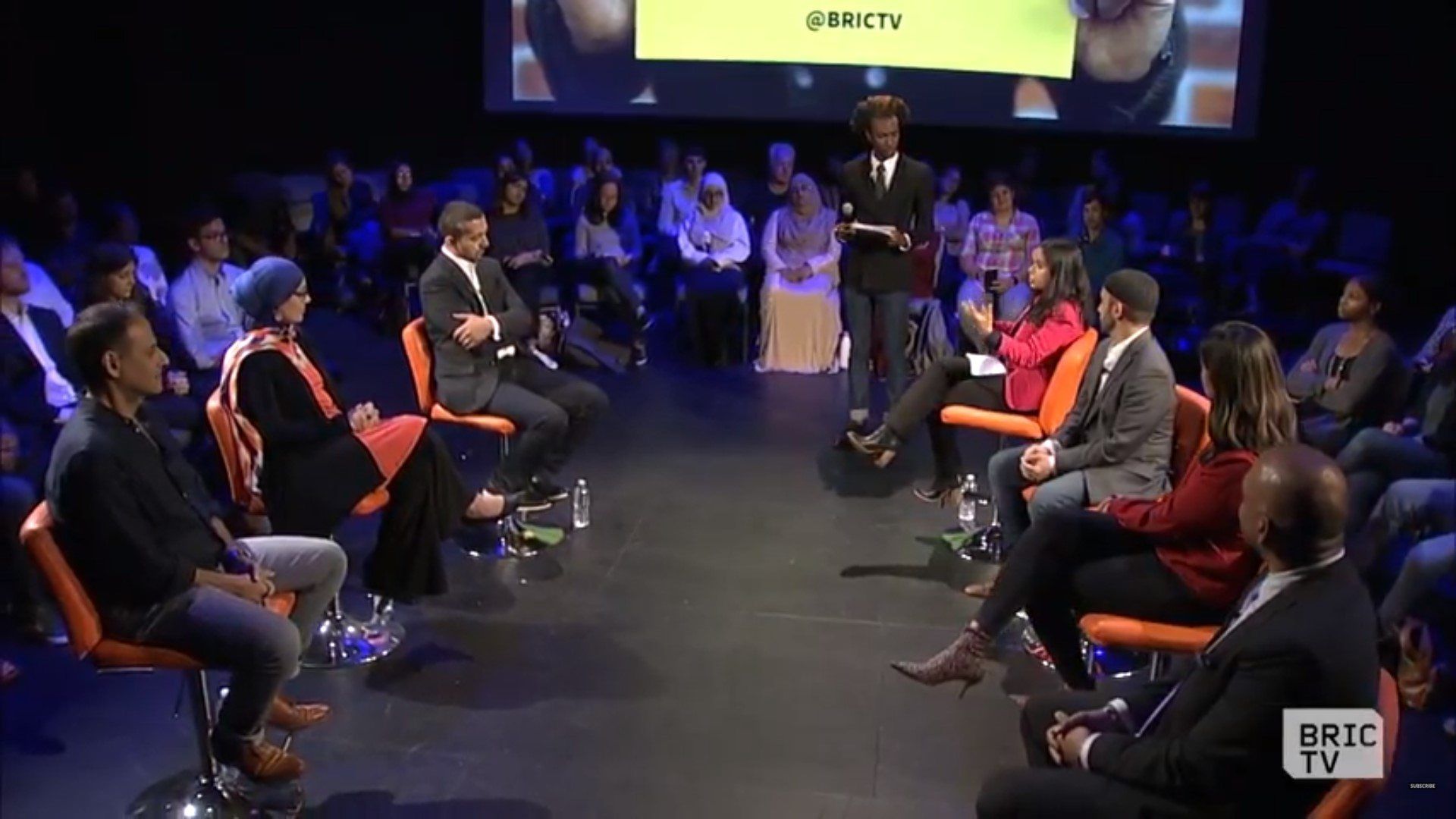Muslims Say Islamophobia Is Taking a Mental Toll on Their Communities (VIDEO)


BROOKLYN – One thing was clear at a town hall discussion in downtown Brooklyn on Wednesday: being Muslim in America in 2017 comes with a lot of emotional trauma.
A panel of Muslim journalists and activists convened at BRIC House for “Muslim in New York: A Community Comes Together.” The group talked about the realities of living as a Muslim and Islamophobia. It was deeply personal as Dr. Debbie Almontaser of the Muslim Community Network shared her experience on 9/11 — she recalled that her friend insisted on accompanying her home and during the car ride, a man yelled, “You did this to us!” — and journalist Mehdi Hasan brought up his fears as a parent of two daughters.
But it was a video of one young Muslim man telling the story of his father’s arrest that exemplified the toll on Muslims’ mental health post 9/11. The man described seeing his family separated, and being ostracized in his community.
The young man’s case isn’t unique. “This is psychological warfare on American Muslims,” Almontaser said on Thursday. “The fact that we have so many children changing their name from Mohammed to Mo [is] just truly devastating, and this is because of the fact that we live in a society where Muslims are seen as the ‘other,’ where people are supposed to fear Muslims.”
According to CAIR, a Muslim advocacy and civil rights group, the number of hate crimes against Muslims in the United States nearly doubled in the first half of 2017 compared to the same time in 2016. The American Psychological Association has also recognized the damage that Islamophobia does to mental health.
Other panelists spoke about different pressures that Muslims face. Attorney Naz Ahmad said that she has clients on the government’s no-fly list who are “traumatized” by the idea of flying.
“Everybody gets patted down and they get treated like they’re all carrying bombs, but they’ve gone through this process so many times and nothing ever comes out of it,” she said. Critics of the government’s program have said the guidelines for placing people on the list are too vague.
On Wednesday, the panel also acknowledged that the discrimination is even greater for black Muslims. “We are traumatized people with all kinds of hurt and pain,” Imam Al-Hajj Talib Abdur-Rashid, the leader of the Mosque of Islamic Brotherhood Inc. in Harlem, said in a video. “Double whammy discrimination, that is our reality.”
The discussion resonated deeply with many of the audience members. Hoshneara Begum, an activist from Queens, recalled how she was punched in the face several times, and also had her hijab torn off. She said in another incident, someone in school tore her daughter’s hijab off. “I had no choice but to put her in an Islamic school,” Begum said, adding that it was difficult to afford the monthly tuition.
She said that she would like to see other discussions about the different ways people experience Islamophobia. She said that for her, there’s one lesson in all of this: “We need to start treating each other as human first.”
Watch the conversation:



